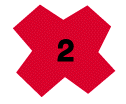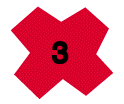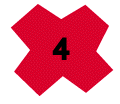STEALING THE GIFT OF DOUBT: ANTHROPOLOGY TO ART
I no longer have much desire to read anthropology or ethnography. That surprises me; an important part of my life has gone without my noticing it, like an old friend whose long absence I have finally noted. For anthropology was my friend, my serious companion. Anthropology was what took me out of myself, stretched me, and kept me seeing. Anthropology opened the world for me: not the geographical world, but the actual world of edges, of contradiction, of paradox, of constant change. Anthropology destroyed the certainty of my upbringing; it taught me to play with difference. It taught me to dance. And Anthropology's dance was thought itself; its music was ambiguity: the rhythm of clarity slipping away. Anthropology gave me the gift of sliding thought.
I do not mean the academic discipline of anthropology; I do not even mean my own fieldwork. I mean being an anthropologist. I mean doing anthropology. I mean the ingrained habit of positive and powerful uncertainty that the actualities of other people's lives forced upon me. I mean, that is, the inescapable habit of doubt: doubt of what is most obvious, doubt of what is most pleasant, doubt of what is most useful and selfserving, doubt of what is obscure and difficult, doubt of what is painful, destructive or useless. Doubt, I mean, of everything; even of anthropology. That is the anthropology I mean. The anthropology of doubt.
What anthropology gave me was the resource of doubt. It gave me doubt as human life itself, as the definition of human life. It gave me doubt as its own justification: a ringing, allencompassing, energizing, positive doubt as the ongoing justification of my life. What anthropology gave me was the gift of doubt.
Anthropology gave me that ambiguous gift. But art turned it around. I began to make objects; objects specifically meant to be unclear, meant to be ambiguous, meant to be inaccessible to the limitations of language and explanation. Art, I found, could be made of my own materialized doubt. Art, I found, could grab, could hold, the invertedspace that anthropology pointed at; could turn it immediately and concretely back upon the world.
Anthropology gave me the gift of roiling doubt. But art forced the doubting home. Art spoke, shouted, the actual language of doubt. Art was my doubt inverted, turned in as well as out. Art was anthropology inverted: the seeer seen in his seeing, the doubter doubted in his doubting, the knower known by the impossibility of his selfappointed, but culturally sanctioned task. Art perversely identified me as the embodiment of all clarity slipping away. Art transformed me to sliding thought. Art stole for itself the anthropological gift that had sustained me.



